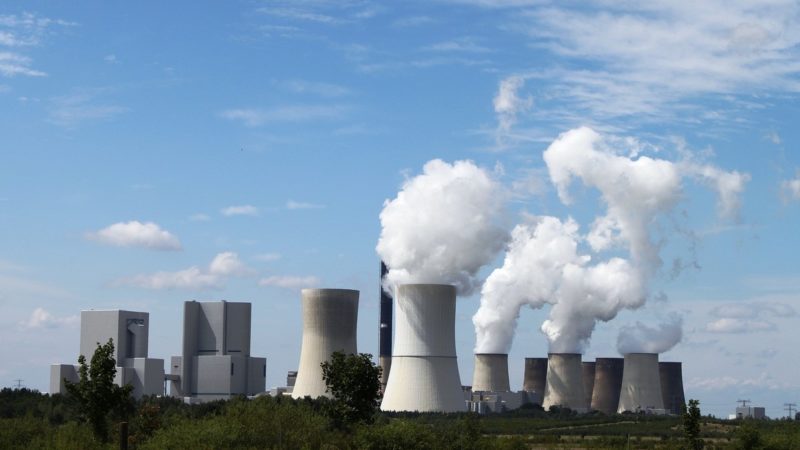Here's how the TUC plans to ensure a just transition to net zero for workers.

The TUC is strongly supports radical action to tackle climate change and decarbonise our economy.
As the voice of working people, we have a particular responsibility to champion a just transition to a new low-carbon economy — see our July report here.
We have set out a clear, practical policy framework for securing a just transition, informed by conversations we had in front line workplaces around the country, including employees in the power stations and energy companies who would see significant change in their industries.
First, we need a clear and funded path to a low-carbon economy. UK unions have long supported a balanced energy policy and an affordable energy supply for the whole country.
We’re calling for a cross-party commission on long-term energy use, involving affected workers, unions, industries and consumers. This commission would study the social impacts of such a transition, its regional impacts and necessary mitigation measures.
The government should invest, using progressive taxation, in new forms of energy. We also need government investment in infrastructure and support for sectors including automotive, aerospace, steel and construction, as well as household energy efficiency programmes and better public transport.
Second, workers and communities across the UK most affected by the shift must have a central say in how the transition is brought about.
Our just transition roadshow highlighted that workers’ attitudes to change are very different if it is something done with them, rather than to them. And of course the most obvious way to engage with workers is through their trade unions.
Workers themselves are likely to know how to help companies adopt cleaner technologies and adapt processes. Companies should develop transition agreements, agreeing these with unions. These transition agreements should cover issues such as job numbers, pay and conditions, job security, training and skills, health and safety, and equal opportunities.
Just transition arrangements should also be covered in bargaining at sectoral level. Decarbonising our economy will create, threaten and transform millions of jobs.
Third, workers must therefore be supported to develop and adapt — throughout their working lives. Employers and government must step up their investment in skills. A good start would be for the government to reverse the 45% cuts made to adult education since 2009-10, as reported by the Institute for Fiscal Studies in 2018.
The government should establish ‘lifelong learning accounts’ for all adults. This would give everyone a personalised budget for training, as well as a right to regular career reviews, face-to-face guidance and support on training. And we need to invest in and reconfigure our social security system to allow workers to train for new roles and take on new opportunities.
Fourth, new green jobs must be good jobs. Every new job created by the move to a low-carbon economy should be just as good, if not better, than those it will replace. That means trade union recognition, decent pay, terms and conditions, high standards of health and safety, and a fair pension.
Anything less does not meet the test of a just transition. Government has a role to play too. When ministers invest taxpayers’ money in new infrastructure, they should use their procurement powers to generate jobs beneficial to local workers, communities and throughout the supply chain.
A robust industrial strategy must focus on creating jobs where they’re needed most, in all regions and nations of the UK. The UK must retain a strong manufacturing base and must not simply export carbon-intensive jobs overseas.
This is a challenging agenda that we must be determined to meet.
We must recognise that economic, social and environmental justice must be achieved together. In 2019 to address one without the other two makes little sense. The next generation, whose voice is so clear and welcome on this issue, will not forgive us if we fail.
Beth Farhat is TUC northern regional secretary and Paul Nowak is the deputy general secretary of the TUC. This piece first appeared in the October 2019 IPPR and WWF collection Putting People at the Heart of the Green Transition.
Left Foot Forward doesn't have the backing of big business or billionaires. We rely on the kind and generous support of ordinary people like you.
You can support hard-hitting journalism that holds the right to account, provides a forum for debate among progressives, and covers the stories the rest of the media ignore. Donate today.




2 Responses to “Four steps to take us to a green and fairer economy”
Tom Sacold
This is total Blairite bullsh!t, designed to protect the interests of the middle-class.
Janet Bennett
It’s well worth looking at the Lucas Plan devised by workers at Lucas Aerospace in 1975.